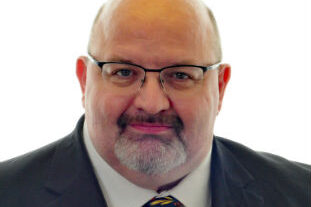Whilst the headlines have been filled with the additional income reliefs that the government have made available during the Covid-19 outbreak and the enforced lockdown that has followed, there is one relief that has not received the attention it should – mainly because it is already in existence.
Child Benefit has been available for several years but is restricted for those whose income exceeds £50,000 per year as a result of the High Income Child Benefit Charge (HICBC). The HICBC introduces a progressive income tax charge which has the effect of restricting the Child Benefit that you are entitled to keep when your income exceeds £50,000. By the time your income has passed £60,000 per year, the tax charge is sufficiently high that the Child Benefit has been reduced to nil. As a result of the administration involved in declaring the HICBC, where a parent’s total income was habitually in excess of £60,000, a lot of parents simply disclaimed the Child Benefit in the first place in order to avoid the aggravation of filing Self Assessment Tax Returns for no other reason than to repay the HICBC.
Is it time to revisit any decision to disclaim the Child Benefit?
One of the side effects of the coronavirus is that some people’s income is being reduced as a result of the downturn in the economy. Consequently, where your income may have exceeded £60,000 in the tax year to 5 April 2020, you may now be expecting decreased income in the current year, whether this is from earnings, profits, rental or investment income. As a Child Benefit claim can only be backdated three months, now is the time to restart claiming for any qualifying children you have if you previously disclaimed the Child Benefit because of the HICBC.
At the same time, you may also like to consider revisiting income planning. If you have the ability to control your income, you could consider equalising your income as a couple if you have not already done so (either by moving investment income to your spouse, considering bringing your spouse into business with you or adjusting joint salaries). The reason for this is the £50,000 threshold is per person and not per couple. This means that one person earning £60,000 would not be entitled to retain any Child Benefit, but a couple earning £30,000 each could. (Depending on your circumstances, equalising your income could also make better use of your personal allowances and tax bands though you should consider all other implications of moving assets or admitting a spouse into business or partnership before doing so – tax is not always the be-all and end-all of financial or family arrangements).
If you restart a Child Benefit claim and then find that your income for the current tax year does exceed £50,000, all that this will mean is that you will have to repay some or all of the Child Benefit claimed via the High Income Child Benefit Charge in your Self-Assessment Tax Return. (The actual HICBC would be payable either on 31 January 2022 to the Collector of Taxes or potentially payable through your PAYE code starting in April 2022). Apart from some additional administration, you would be no worse off for making a claim and then having to suffer the HICBC. But if you wait until later in the tax year when your actual income levels are known, you may find that you are too late to backdate a claim and end up losing out.

